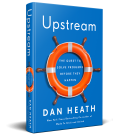Do healthy-sounding terms such as “organic” or “trans-fat-free” seduce us into eating more than we would otherwise? (I.e., do we feel virtuous eating our “trans-fat-free” french fries and conclude that we’ve earned a cookie?) John Tierney has a great piece exploring the phenomenon. From the article:
Experiments showed that putting a “low fat” label on food caused everyone, especially overweight people, to underestimate its calories, to eat bigger helpings and to indulge in other foods.
The researchers found that customers at McDonald’s were more accurate at estimating the calories in their meal than were customers at Subway, apparently because of the health halo created by advertisements like one showing that a Subway sandwich had a third the fat of a Big Mac. The health halo from Subway also affected what else people chose to eat, Dr. Chandon and Dr. Wansink reported last year after giving people a chance to order either a Big Mac or a 12-inch Italian sandwich from Subway. Even though the Subway sandwich had more calories than the Big Mac, the people ordering it were more likely to add a large nondiet soda and cookies to the order. So while they may have felt virtuous, they ended up with meals averaging 56 percent more calories than the meals ordered from McDonald’s.
“People who eat at McDonald’s know their sins,” Dr. Chandon said, “but people at Subway think that a 1,000-calorie sandwich has only 500 calories.” His advice is not for people to avoid Subway or low-fat snacks, but to take health halos into account.



